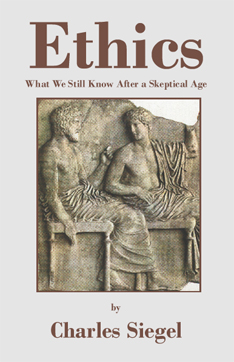Preservation Institute
The Natural Environment : The Social Environment
Transportation and Development Politics
Political Theory: Beyond Progressive and Conservative
Ethics
What We Still Know After a Skeptical Age
A Preservation Institute Book
Buy the book
|
“The main classical tradition of ethics is based on the idea of natural flourishing. The nature of an acorn is to grow into an oak tree, and the nature of a baby is to grow into an adult with full human abilities. Gardeners help trees to flourish, to develop their natures fully. The virtues help people to flourish, to develop human nature fully.”
Modern philosophers rejected classical ethics because they believed in the logical principle that we cannot derive “ought statements” from “is statements,” which made it impossible to base ethics on human nature.
This book shows that this logical principle is false. You can derive “ought statements” from teleological “is statements,” statements about function, goal, or purpose.
Philosophers rejected classical ethics not because of a logical problem but because they rejected Aristotle’s teleological view of nature. In the seventeenth century, philosophers accepted the new physics, which explained nature on the basis of mechanical causes, not of goals. If nature is not teleological, then it is impossible to base ethics on human nature.
But we still think teleologically about human nature when we base our idea of health on the proper functioning of our basic physical capabilities. Likewise, by basing the idea of arete on the proper functioning of all our capabilities, we can develop a version of classical ethics that is still convincing after a skeptical age.
“People, animals, and plants all have natural teleology that we should respect. Natural ethics implies that we should treat all living things as ends in themselves, rather than just as means to our ends.”

